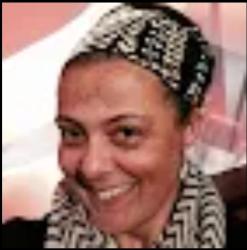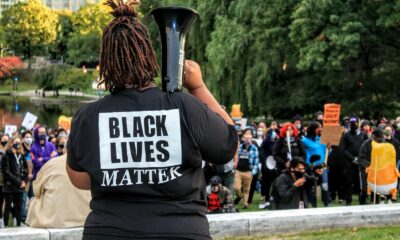Featured
Big Freedom Dreams: Ryan Sorrell Finds His Activist Voice As A Witness In Kansas City

Activism is alive and well around the United States. In the Midwest, movements like Black Lives Matter continue to serve as the collective conscience of a region that grapples with violence against African Americans, as well as inequity across a range of social and economic indicators. The “Big Freedom Dreams” series profiles Midwestern Black activists making their mark.
Americans of all races may think of the heart of the country in a certain way. Ashley Howard, who teaches history at the University of Iowa, points to stereotypes about “Midwest Nice,” a “live and let live” attitude and a single-minded dedication to work that might rule out activism.
“When we make the Midwest a museum piece to harken back to a better day that never existed, we are beginning to get into the cycle to demonize the people who are trying to make it better,” said Howard, who studies and teaches about activism.
Their forebears may have exemplified some regional stereotypes, as they built lives in the decades after the “Great Migration,” from the south to the north.
Younger generations have different ideas.
“They say, ‘This place is horrible and you, old folk, you don’t know what time it is, so we’re going to go out there,” Howard said. “And so, we see this tension between the generations, based on their realities and their expectations.”
Some of those “out there” emerging as leaders and influencers are becoming household names.
Cori Bush, 45, was a nurse and pastor when she saw her community explode after Michael Brown was killed in Ferguson. She was moved to join the protests and became a champion for racial and social justice in the Midwest. Now she’s a U.S. Congresswoman, the first Black woman from Missouri to earn the position.
“I didn’t set out to become an activist,” Bush told ABC News in 2020. “That wasn’t even a thing back then. I was watching my community in rage. I was watching my community just look a way and feel a way that I was unfamiliar with.”
Bruce Franks, Jr. was a battle rapper in the St. Louis area when he felt the pull of the Black Lives Matter movement in 2014. He would later win a seat in the Missouri House of Representatives before turning his focus to voting rights activism and other social justice work.
“Before Michael Brown was killed, I had never protested,” Franks told Al Jazeera in 2020. “But I remember seeing (Brown’s) body in the street, I remember all the social media around it, and I remember thinking to myself, ‘In 16 years, 17 years this could be my son. What would I want to do, what would I want people to do, if this happened?’”
‘We don’t use euphemisms’

Don’t call him a journalist. Although he is a publisher, Ryan Sorrell founded the Kansas City Defender July 2021 as what he calls a “source of information.”
The 26-year-old rejects what he believes mainstream journalism stands for. Dismayed by the way media outlets in the Kansas City region covered Black activism, Sorrell decided to do something different.
“I don’t seek to identify with the term journalist,” Sorrel said. “Just because a lot of journalism, I think, is rooted in white supremacy, and journalistic values like objectivity can be problematic and harmful to the black community.”
Sorrell and his colleagues boldly use the Kansas City Defender website and social media platforms to call attention to – and call out –
racism and systemic inequities in the
Greater Kansas City region, which includes communities on both sides of the Kansas-Missouri border.
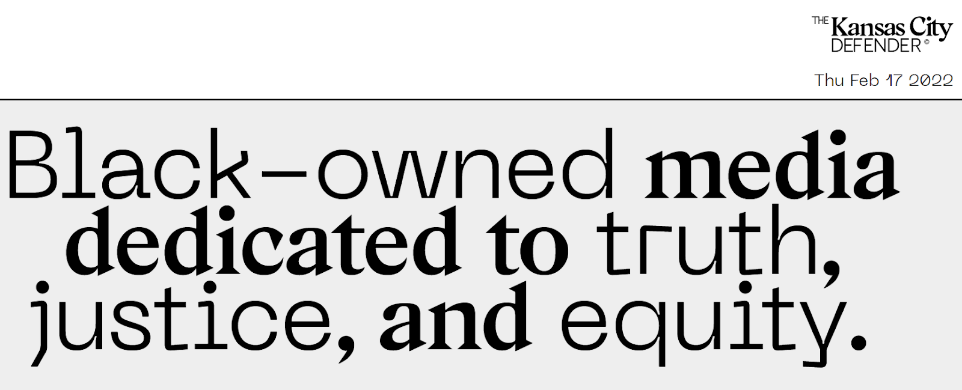
the powerful accountable through unapologetic, truth-telling.”
“I think that’s also why a lot of young black people resonate with our platform,” Sorrell said. “Because we don’t use euphemisms. We just say things very plainly. I think they can just kind of see the holes that are in so-called ‘objective news’ and that they want something that actually advocates for a different world.”
Sorrell grew up in Lee’s Summit, Missouri. It’s a community just east of Kansas City, with a population of just over 100,000 of which about 9% is African American. He said navigating life as a kid in a mostly while community gave him a keen sense of how racial and ethnic dynamics and tensions play out in school settings.
Today, the Kansas City Defender is known as a fierce watchdog of racism in public schools. Sorrell’s team keeps close tabs on incidents and trends in the metro Kansas City area’s many school districts, from a racist homecoming dance invitation in Olathe, Kansas to a recent student protest about a teacher caught using the n-word in Park Hills, Missouri.
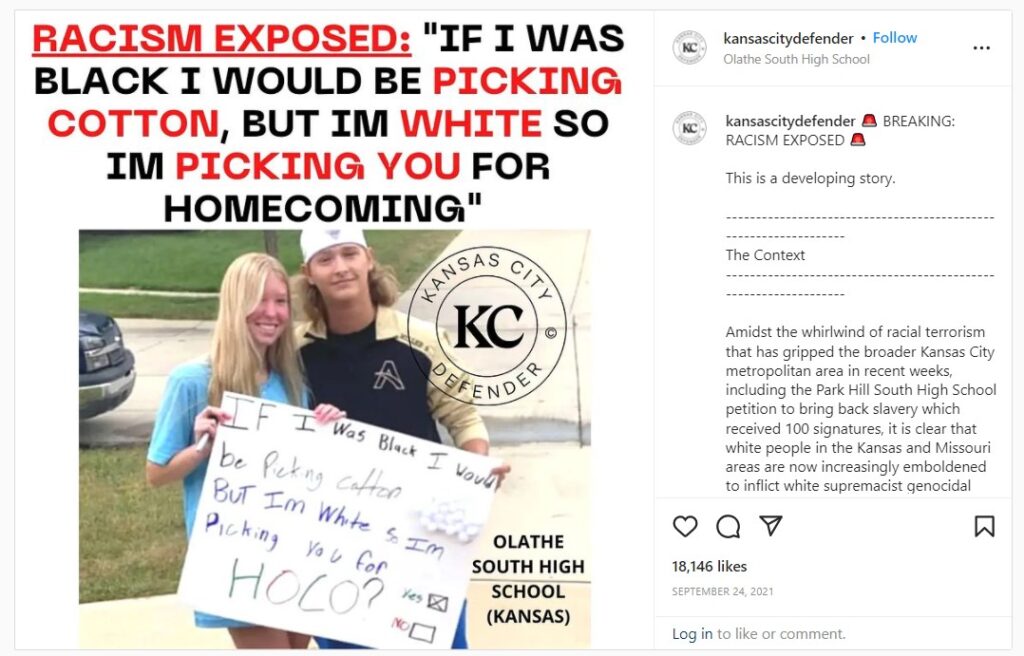
racist incidents in the context of public schools. This example is from September 2021
Sorrell and his team of volunteer staff combine their hard look at systemic racism with stories that celebrate and affirm Black lives – with unapologetic bias.
“I’m much more interested in uplifting their stories and telling their stories than I am the idea of trying to hear both sides,” he said.
Not everyone likes what the Kansas City Defender is doing. Sorrell has received feedback from African American journalists and leaders who have different views about what he could be doing with his platform.
“There are people in the Black community who have allegiance to the idea of journalism that maybe that they were brought up in,” he said. “I think that they have valuable insights, but we’re just doing things a lot differently.”
Like many activists, Sorrell did not initially envision a life on the frontlines of racial and social justice. He entered college in Chicago as a business major. Then Trayvon Martin was killed in 2012. Two years later came the killing of Michael Brown. Sorrell saw activists around him rise up, calling for justice. He watched as Black Lives Matter became a staple of conversation and debate in America, and he learned about the Black Youth Project, a Chicago organization which supports young African American students in activism.
These experiences sparked a change in Sorrell. Inspired to channel his interest and skills toward contributing to racial and social justice movements, he changed his major to communications and began to focus on how using technology and social media could help him make a difference.
Now, with less than a year as a publisher under his belt, Sorrell has plans to sustain the Kansas City Defender through grant money and contributions from the public. In January, the Abolitionist Teaching Network awarded Sorrell a grant for exposing systemic racism in Kansas City area schools through the Defender’s website and social media platforms.
“I cannot imagine a more inspiring organization to be recognized by,” he said in a Kansas City Defender article. “This is truly an honor, and we look forward to continuing the tradition of radical Black Media.”
To learn more about African American activism in the Midwest, visit AfricanAmericanMidwest.com.
Holly Edgell is a journalist living in St. Louis, Missouri. Follow her on Twitter @hollyedgell.

-

 Black History5 months ago
Black History5 months agoThe untold story of a Black woman who founded an Alabama hospital during Jim Crow
-
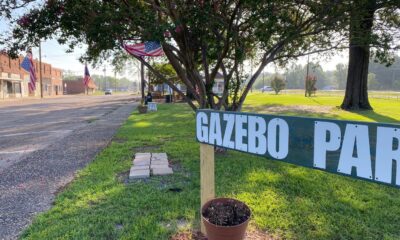
 Featured9 months ago
Featured9 months ago‘No Closure’ In Town Where Five Black Residents Were Either Murdered, Died Suspiciously Or Are Missing
-
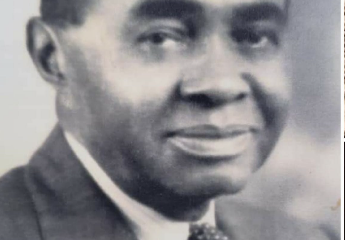
 Black History10 months ago
Black History10 months agoBlack History Lost and Found: New Research Pieces Together the Life of Prominent Texas Surgeon and Activist
-

 Featured9 months ago
Featured9 months agoFounder of “The Folding Chair” Podcast Calls Montgomery’s Brawl ‘Karma’
-

 Featured9 months ago
Featured9 months agoThousands ‘Live Their Dream’ During National Black Business Month
-

 Featured11 months ago
Featured11 months agoJuneteenth And ‘246 Years Of Free Labor’ Are Key To Conversations About Reparations

